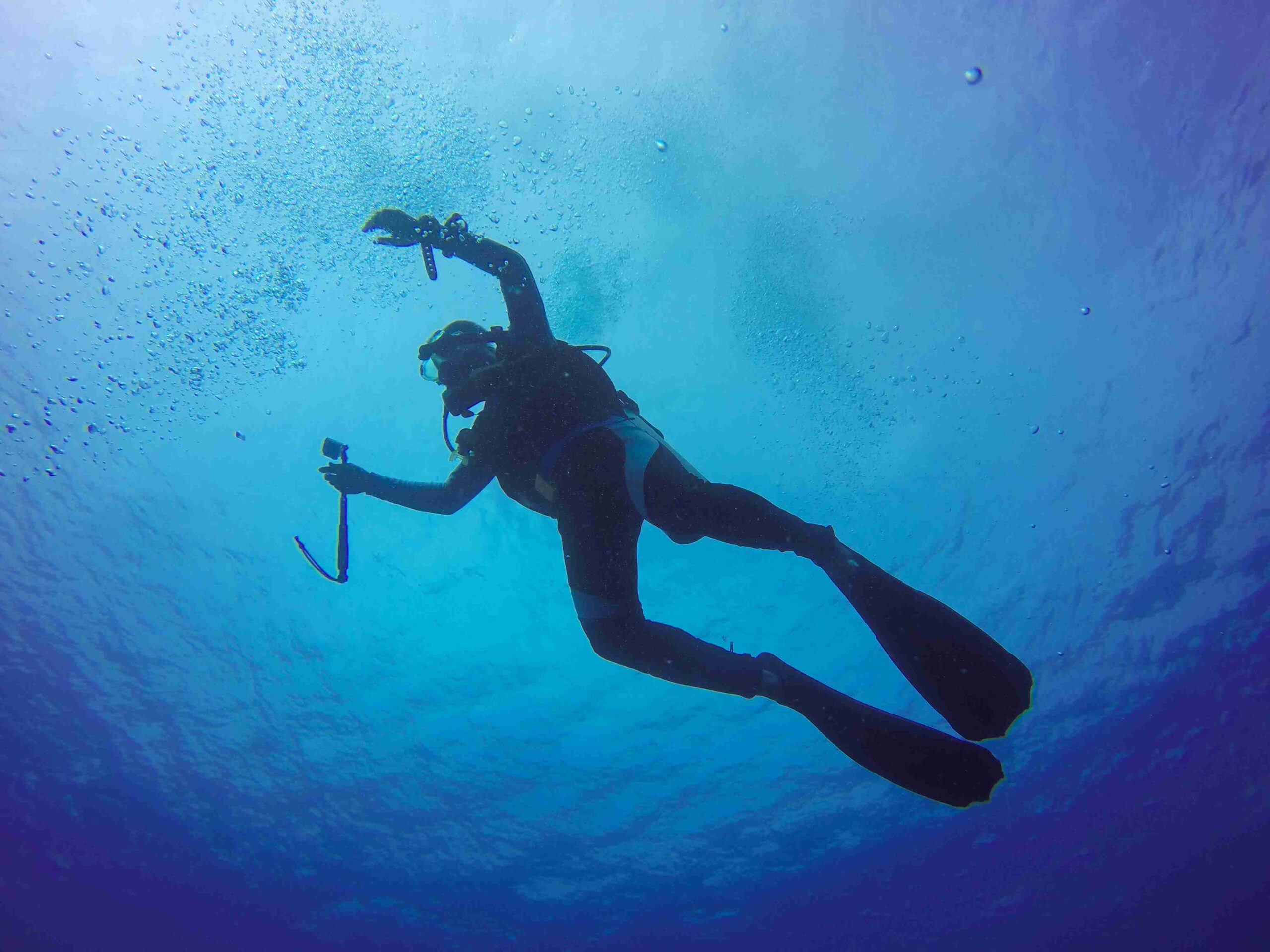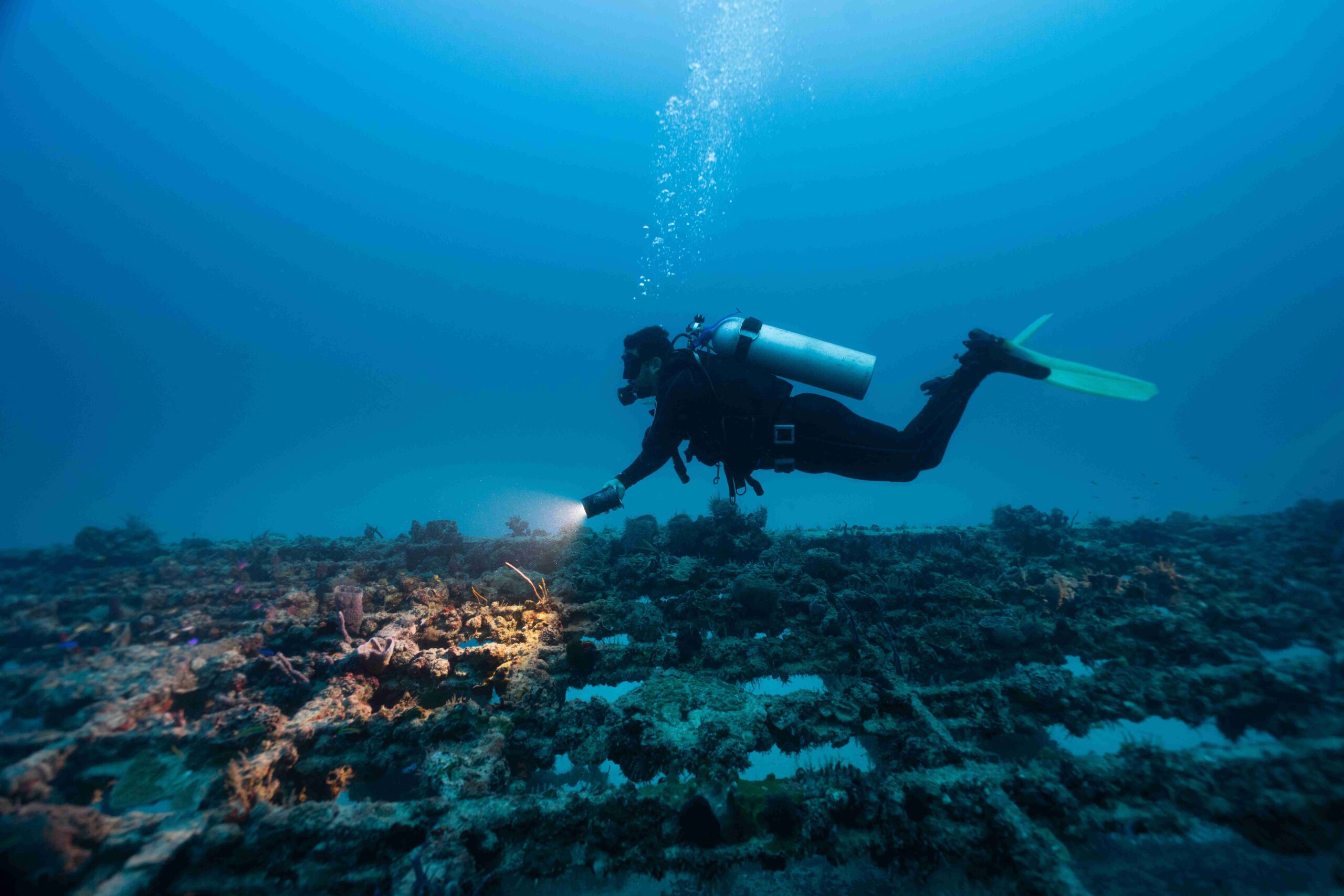Scuba diving is an adventure that unlocks the mysteries of the underwater world. From vibrant coral reefs to sunken shipwrecks, the ocean offers an unmatched spectacle for those ready to explore beneath the waves. Let’s dive deeper into what makes scuba diving so extraordinary.

What is Scuba Diving?
At its core, scuba diving is a method of underwater exploration where divers carry their own breathing equipment, eliminating the need for a surface air supply. This independence allows for greater movement and extended underwater adventures.
The term “scuba” is an acronym for “Self-Contained Underwater Breathing Apparatus,” coined in 1952 by Christian J. Lambertsen.
The most common breathing gas used is compressed air, but depending on the dive’s depth and duration, other gas mixtures like nitrox or trimix may be used.
Open-Circuit vs. Rebreather Systems
Open-Circuit Systems — These are the most commonly used systems. Here, exhaled air is released into the water, creating those iconic scuba bubbles. This setup includes one or more high-pressure cylinders connected to a regulator that adjusts the gas to ambient pressure.
Rebreather Systems — These advanced systems recycle exhaled gases, allowing divers to stay underwater longer while using less breathing gas. Rebreathers also produce fewer bubbles, making them ideal for military, scientific, and media divers who need a quieter approach.

Essential Scuba Diving Gear
To fully enjoy your scuba diving experience, you’ll need the right equipment:
- Diving Fins. These provide the power to glide through the water effortlessly.
- Mask. Essential for clear underwater vision.
- Diving Suit. Protects against cold water and environmental hazards.
- Buoyancy Control Device (BCD). Helps maintain neutral buoyancy underwater.
- Weights. Counteracts buoyancy to keep you submerged.
- Dive Computer. Tracks depth and time to avoid decompression sickness.
- Additional Tools. Snorkels, lights, cutting tools, and signalling devices enhance safety and convenience.
Why Learn Scuba Diving?
Scuba diving opens up a world of opportunities:
- Explore reefs, wrecks, and marine life in ways snorkelling can’t.
- Study underwater ecosystems and marine species.
- Support industries like underwater construction and search and recovery operations.
- Conduct covert operations as a frogman or combat diver.
Getting started in scuba diving requires proper training. Certified instructors guide you through essential skills and safety protocols, ensuring you’re ready for every dive. Certification levels range from beginner to advanced, with specialties in areas like wreck diving or underwater photography. A baseline of fitness is necessary, but those aiming for professional diving roles may need enhanced physical conditioning.
Why Scuba Diving is a Life-Changing Adventure
Imagine gliding alongside a sea turtle, witnessing a colorful coral reef, or exploring the mysteries of a shipwreck. Scuba diving is more than just a sport. It’s a gateway to another world. It challenges you, rewards you, and leaves you with stories to tell for a lifetime.

